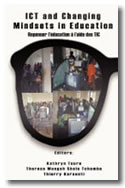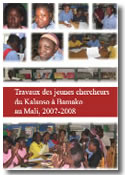‘Jayhawkers’ film shows how Lawrence transformed on racial issues March 15, 2014
By MARY SANCHEZ
The Kansas City Star
Hollywood couldn’t make this film.
Kevin Willmott’s “Jayhawkers” played to a sold-out crowd Friday night at the Lied Center in Lawrence. The movie is not what some might expect. Basketball legend Wilt Chamberlain is the star, but only technically.
This is a local story with deeply significant undertones. Among its many storylines is how the actions of a few made all the difference in the lives of others. University of Kansas Chancellor Franklin Murphy, Coach F.C. “Phog” Allen, Kansas City Call general manager Dowdal Davis and others used Chamberlain’s presence in Lawrence to push race relations a little closer to equality. Chamberlain (deftly played by KU basketball player Justin Wesley) instituted change by being present and a star player.
Chamberlain hadn’t sought that role. As the film depicts, he wanted to avoid racial strife.
The film plays out through the eyes of Nathan Davis, an internationally known saxophonist from Kansas City, Kan. Davis attended KU at the same time and became friends with the 7-foot-1 player. The real Davis attended Friday’s event. It was the first time he’d been to Lawrence in 50 years. The film’s soundtrack features Davis’ works.
Davis pronounced the movie “true,” a comment that needs an asterisk. He means the tones of the city then are accurately captured. Liberties are taken with some details. So many of the key characters are deceased, and there are few recorded accounts.
Lawrence in the late 1950s wasn’t a hate-filled town of overt racial animosity. But it was segregated.
Davis recalled a restaurant where his band played at night, but where, as African-Americans, they couldn’t eat lunch. In Jayhawkers, a diner refuses to serve Chamberlain. Later, the embarrassment of turning away KU’s star player prevails. The place opens up to black customers.
Davis remembered the headlines when Lawrence theaters stopped segregating. In the film, Chamberlain is told he and a white date have to move upstairs to the balcony. Chamberlain refuses, encouraging the black people in the balcony to come join him in the lower theater seats. That probably didn’t happen, Davis said.
But by welcoming Chamberlain, individual Lawrence businesses took a few steps toward making the city what it is today. “Jayhawkers” is an example of what a locally produced film can provide, subtleties that might be lost if someone else was doing the retelling.
Source: www.kansascity.com/2014/02/19/4835178/jayhawkers-film-shows-how-lawrence.html




Leave a Reply